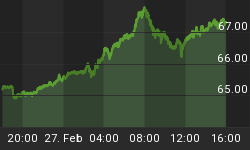At Active Trading Partners, we believe that nobody can predict exact bottoms nor tops, but we can certainly come close. In light of that belief, we "scale in" to our preferred trade set ups using 1/3 tranches at a time. Using our backdrop of looking for waterfall decline entry points for reversal profits, we add in some Elliott Wave theory and Fibonacci figures to mix up our recipe. As we see a trade set up coming around the bend, we begin to "Scale In" to our trades as each Fibonacci or Wave pattern is reached.
Samples are our recent trade into BGZ, which is 3x short the Russell 1000 Index. The Elliott Patterns we interpreted said the market rally would wane as we hit 1071/1074, 1085, and 1092. As those areas were hit on the SP 500, we would purchase 1/3 positions into BGZ, inevitably profiting from the overbought reversal to the downside in the markets. This reversal happened on cue on Friday last week, July 16th. Our BGZ position rose 8.5% in just one day of trade, allowing us to enter into a "green" profitable territory on our scaled in position.
Scaling in eliminates the traders desire to let the ego over-take their emotions. By this, we mean your trading system is useless if your emotions can't be kept in check both on the downside and the upside. At ATP, we try to combat that by scaling into and out of positions, forcing ourselves to buy while others cry... and sell when they yell. It is extremely difficult to go counter-trend against the noise of the markets, but certainly if you plan to do so you must have a plan of action. Trading with emotion is a sure-fire way to lose money in the markets. Taking your time and being methodical with scale in entry points into a trade, reduces your risk of entry and allows for a much greater probability of profits, as well as greatly reduced losses on the trades in which you are wrong.
Never dive "all in" into a trade position, no matter how confident you are of the entry timing, chart, and price. Always scale in methodically. Worst case the position takes off to the upside for you and you didn't buy a full position, but that is so much better than going all in one one trade and mis-timing your entry, costing your trading account major dollars.















